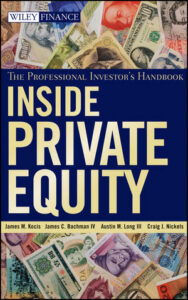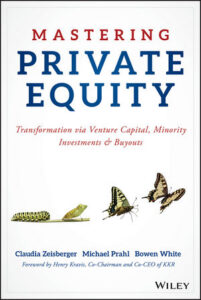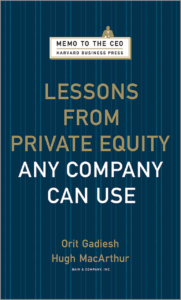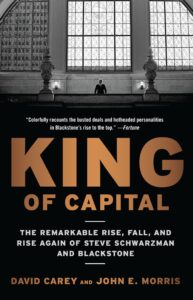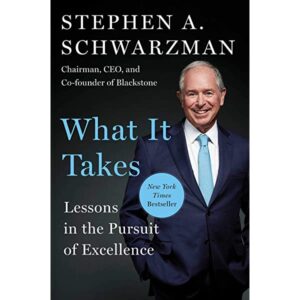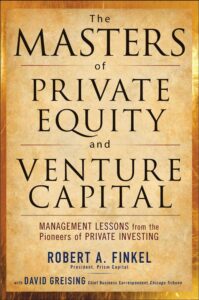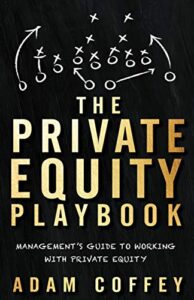Private equity books are a great source of information, for professionals working in the field, and for anyone interested in finance. A great tool to learn more about private equity, whether you are a student, or you actually work in the industry. Some of the private equity books on this list are introductory, and those are certainly advisable to those starting out. However, some are certainly more advanced and go over different private equity strategies and case studies.
Barbarians at the Gate: The Fall of RJR Nabisco
We could not talk about private equity books without mentioning this masterpiece - Barbarians at the Gate. This private equity book is well known not only among private equity professionals but also for those interested in finance. Barbarians at the Gate does not just tell RJR Nabisco’s leveraged buyout story. The book was such a success that it was later adapted into a movie. It is easily among the best Wall Street and stock market movies of all time. Barbarians at the Gate is easily among the best private equity books of all time. A must-read for those interested in understanding how private equity works, and the consequences of the leveraged buyout mania of the 80s.
Inside Private Equity: The Professional Investor's Handbook
Inside Private Equity is perhaps one of the best introductory private equity books. It summarizes in detail what the industry is all about. Explaining some private equity concepts with direct examples. This is a great private equity book if you are new to the industry and want to learn about some of the basics. Readers will be able to learn some of the most basic concepts like IRR and will get access to direct examples that can help understand the concepts.
Mastering Private Equity: Transformation via Venture Capital, Minority Investments and Buyouts
Mastering Private Equity is not an introductory private equity book by any means. This book is meant for private equity professionals working in the industry. Although some of the first chapters include an overview of some basic concepts, some of the later chapters include more sophisticated approaches to some private equity concepts. Mastering Private Equity covers everything from deal flow to valuation, and different private equity strategies. It also includes commentary from several revered private equity professionals.
Lessons from Private Equity Any Company Can Use
This private equity book is among the shortest books on this list, and although it is related to private equity it completely stands out from this list. The main difference is the way the book approaches private equity. It focuses on analyzing how private equity funds manage their businesses. The book shows the strategies used by private equity firms, in order to create value. Relating how this can also be applied to any business, from small businesses to public companies.
King of Capital: The Remarkable Rise, Fall, and Rise Again of Steve Schwarzman and Blackstone
King of Capital focuses on Steve Schwarzman and how he built Blackstone to be one of the largest asset managers in the world. It tells the story behind Blackstone’s growth, and how their distinctive asset allocation strategies have fueled their growth. Although the main focus of the book is Blackstone and their story, the book also gives readers a glimpse into the leveraged buyouts conducted in the 80s. It is easily one of the most interesting and rewarding private equity books.
What It Takes: Lessons in the Pursuit of Excellence
Stephen Schwarzman, the CEO and founder of Blackstone shares what he has learned in his journey to building one of the largest private equity firms in the world. Stephen Schwarzman shares some of his most important lessons in this book. Detailing the principles and lessons behind his successful career. Even if you are not interested in private equity books, this is a must-read for any finance professional.
The New Tycoons: Inside the Trillion Dollar Private Equity Industry That Owns Everything
The New Tycoons is an insight into the history of private equity. A broad overview of the companies, and how the industry has grown over the past. It explains how some of the largest private equity firms have been able to grow, and drift away from private equity. It goes over not only the history but some of the strategies used by these firms. The book also details the psychology behind private equity professionals. A must-read for anyone interested in private equity, that wants to understand how the industry has boomed over the past.
The Masters of Private Equity and Venture Capital: Management Lessons from the Pioneers of Private Investing
The Masters of Private Equity and Venture Capital is among the most insightful private equity books. It includes several interviews with renowned private equity investors. Filled with insights into how private equity really works, and how value creation strategies are implemented on each investment. This book differs from others on this list, because it includes different practical perspectives from some of the most renowned private equity investors. They share part of their investment process, as well as some of the lessons they have learned over the years. For anyone interested in private equity or venture capital this is certainly one of the best books available.
The Private Equity Playbook: Management’s Guide to Working with Private Equity
The Private Equity Playbook is among the best introductory private equity books. It shows readers what the competitive landscape in private equity is. The book also details the advantages and disadvantages of working with private equity firms. It presents an overview of private equity and covers some of the most essential private equity concepts in layman's terms.
Private Equity: How the Business of Private Equity Funds Works
This is another introductory book that can be extremely useful for those looking to learn more about how private equity works. A great overview of how the industry operates, and how private equity firms are able to create value. It includes a practical view of the private equity business model, but it extends into valuation and it includes case studies.
Image source: G2



